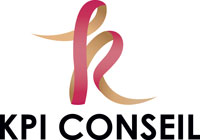Setting up in France: the 10 Mistakes to avoid
Establishing a Presence in France: A Journey Full of Promise… and Pitfalls
France attracts hundreds of foreign investors every year.
A market of over 67 million consumers, a vibrant innovation ecosystem, and direct access to the European Union — everything seems in place for success.
But behind that promise, the reality can be more complex.
Many foreign companies discover too late the specificities of the French market.
Hidden costs, administrative complexity, and cultural differences can turn a promising expansion into a source of frustration.
Cash flow losses, delayed reporting, misunderstandings with headquarters… these pitfalls are frequent — but avoidable.
The Costly Mistakes Foreign Companies Make
These challenges rarely come from a lack of ambition, but from poor preparation.
Expanding into France requires a deep understanding of local regulations and business culture.
Here are the 10 most common — and often most expensive — mistakes observed during market entry:
1. Underestimating Administrative Complexity
Creating a legal entity, obtaining a SIRET number, opening a bank account, or hiring staff can take several weeks.
➡️ Common mistake: believing that registration alone is enough to start invoicing.
✅ Solution: anticipate lead times and rely on an experienced local partner.
2. Ignoring Local Tax Obligations
The French tax system is dense: VAT, corporate income tax, social contributions, etc.
➡️ Common mistake: applying HQ practices without adaptation.
✅ Solution: implement tax compliance from the very first month.
3. Under-Capitalising the Subsidiary
Social charges and payment delays can put heavy pressure on cash flow.
➡️ Common mistake: expecting headquarters to fill in funding gaps.
✅ Solution: prepare a realistic cash flow plan before registration.
4. Hiring Without Understanding French Labour Law
French employment law is highly protective and strictly regulated.
➡️ Common mistake: copying foreign employment contracts.
✅ Solution: draft compliant contracts and budget the real cost of an employee.
5. Neglecting Local Accounting Standards
French accounting (Plan Comptable Général) differs from IFRS or US GAAP.
➡️ Common mistake: relying solely on HQ reporting.
✅ Solution: set up a compliant local accounting system — connected, but distinct.
6. Confusing Group Reporting with Local Management
Headquarters need consolidation. The local team needs operational insight.
➡️ Common mistake: sending only a consolidated P&L.
✅ Solution: design dual reporting — one for the group, one for France.
7. Overlooking Available Incentives
Grants, R&D tax credits (CIR), regional aid, Bpifrance support…
➡️ Common mistake: assuming these are reserved for French-owned companies.
✅ Solution: assess eligibility right from the start.
8. Ignoring Cultural Differences
Management style, hierarchy, and communication vary widely.
➡️ Common mistake: applying HQ methods without adaptation.
✅ Solution: train managers to understand and embrace French business culture.
9. Neglecting Tax and Social Inspections
In France, audits by URSSAF or the tax authorities are common.
➡️ Common mistake: “We’ll deal with it later.”
✅ Solution: document and verify every transaction from day one.
10. Operating Without a Local Bilingual CFO
This is the most strategic mistake of all. Without a local CFO, communication between HQ and the subsidiary becomes fragile.
➡️ Common mistake: managing finance remotely.
✅ Solution: appoint a bilingual outsourced CFO to ensure coordination and compliance.
The Solution: Anticipate, Structure, Steer
Successful market entries in France rely on three key pillars:
Anticipate
Prepare every step — administrative, tax, and HR — before operations begin.
An expert local partner ensures compliance and saves precious time.
Structure
Build a strong financial foundation: initial capital, cash flow forecast, and margin projections.
An international accountant or bilingual outsourced CFO can secure the setup from day one.
Steer
Implement bilingual reporting, monthly cash flow monitoring, and budget control aligned with HQ standards.
This is the key to a smooth and consistent international financial management process.
KPI CONSEIL Support
As a bilingual Chartered Accountant and Outsourced CFO, I support English- and French-speaking executives at every stage of their business setup in France:
- Financial setup assessment
• Accounting and tax compliance
• Bilingual reporting and HQ consolidation
• Budget structuring and performance management
With this tailored support, your subsidiary settles in France with confidence, compliance, and profitability.
Discover KPI CONSEIL’s support packages
Book your international setup assessment
Conclusion: Avoiding Mistakes Is Already Succeeding
France remains a land of opportunity for foreign companies.
But success depends on careful preparation and structured financial management.
“A high-performing subsidiary is one that takes time to settle… to grow strong and last long.”
